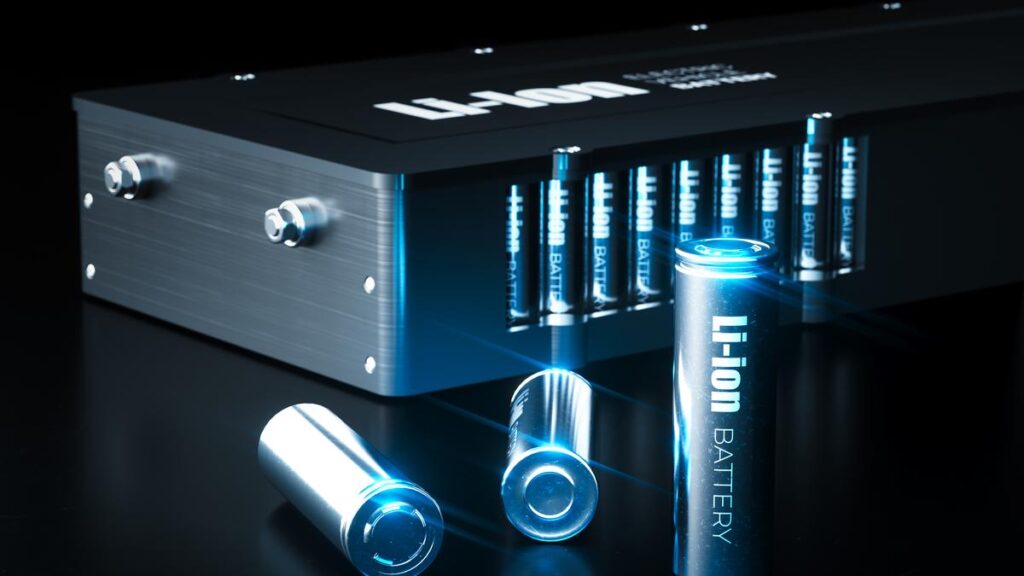
For the manufacturing industries and MSMEs, cobalt powder and waste, scrap of lithium ion batteries, lead, zinc, and 12 more critical minerals will be added to the list announced in the Budget last July for complete BCD exemption.
| Photo Credit: Getty Images/iStockphoto
Union Finance Minister Nirmala Sitharaman announced measures in the Budget to rationalise the customs duty structure for industrial goods by removing seven tariff rates, and address duty inversion.
“These will also support domestic manufacturing and value addition, promote exports, facilitate trade, and provide relief to common people,” she said while presenting the Budget on Saturday (February 1, 2025).
Union Budget 2025 LIVE updates
Industrial goods will have only eight tariff rates (including zero rate) as seven were removed in the 2023-24 Budget and seven more in the Budget announced on Saturday (February 1, 2025). The Finance Minister also proposed to apply appropriate cess to “broadly maintain effective duty incidence” except on a few items, where such incidence will reduce marginally, and levy not more than one cess or surcharge. “Therefore, I propose to exempt Social Welfare Surcharge on 82 tariff lines that are subject to a cess,” she announced.
Further, in a move to encourage voluntary compliance, the Budget proposes introduction of a provision that will enable importers or exporters, after clearance of goods, to voluntarily declare material facts and pay duty with interest but without penalty. However, this will not apply in cases where the department has already initiated audit or investigation proceedings.

The time limit for the end-use of imported inputs in the relevant rules is extended from six months to one year. And, such importers will have to file only quarterly statements instead of a monthly statement, she said.
On Basic Customs Duty (BCD) exemption, 36 life-saving drugs that provide relief to patients suffering from cancer, rare and chronic diseases will be added to the list of drugs fully exempted from BCD, and six life-saving medicines will come under the list of 5% concessional customs duty.
The full exemption and concessional duty will also respectively apply on the bulk drugs for manufacture of the above. Further, specified drugs and medicines under Patient Assistance Programmes run by pharmaceutical companies will get full exemption from BCD, provided they are distributed free of cost to patients. “I propose to add 37 more medicines along with 13 new patient assistance programmes,” she said.
For the manufacturing industries and MSMEs, cobalt powder and waste, scrap of lithium ion batteries, lead, zinc, and 12 more critical minerals will be added to the list announced in the Budget last July for complete BCD exemption.
“This will help secure their availability for manufacturing in India and promote more jobs for our youth,” according to Ms. Sitharaman.
Knitted fabric imports were among the major challenges for the domestic apparel industry. While two types of shuttle-less looms will get into the list of full BCD exemption, the BCD rate on knitted fabrics covered by nine tariff lines will be revised from “10% or 20%” to “20% or 115 per kg, whichever is higher”.
On the inverted duty structure, the Finance Minister proposed to increase the BCD on Interactive Flat Panel Display (IFPD) from 10% to 20% and reduce the BCD to 5% on open cell and other components.
In the 2023-24 Budget, the BCD on parts of open cells was reduced from 5% to 2.5% in the 2023-2024 Budget to boost manufacture of open cells of LCD/LED TVs. This will also be fully exempted now.
The list of exempted capital goods will also cover 35 additional items for EV battery manufacturing and 28 additional capital goods for mobile phone battery manufacturing. This will boost domestic manufacture of lithium-ion battery, both for mobile phones and electric vehicles.
The exemption of BCD on raw materials, components, consumables, or parts for the manufacture of ships and will continue for another 10 years.
Published – February 01, 2025 03:28 pm IST

